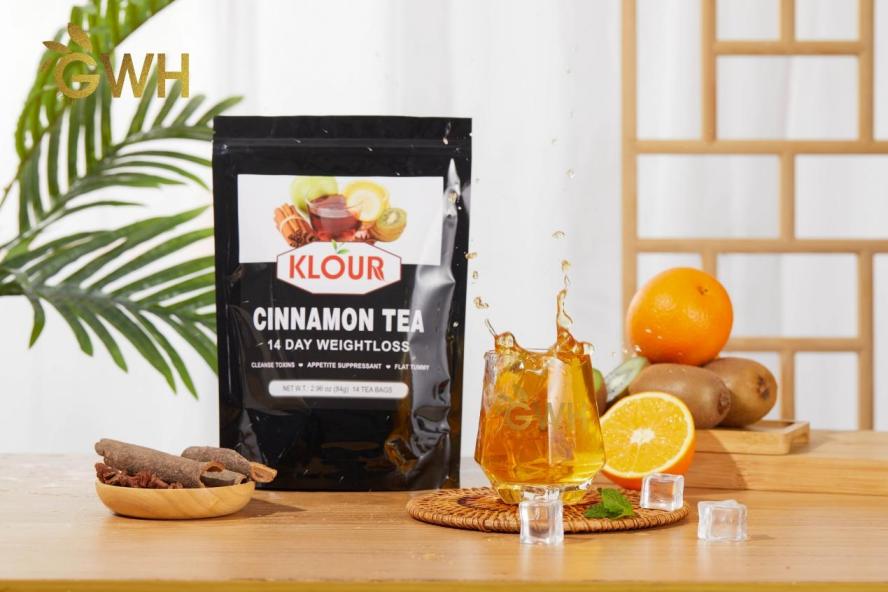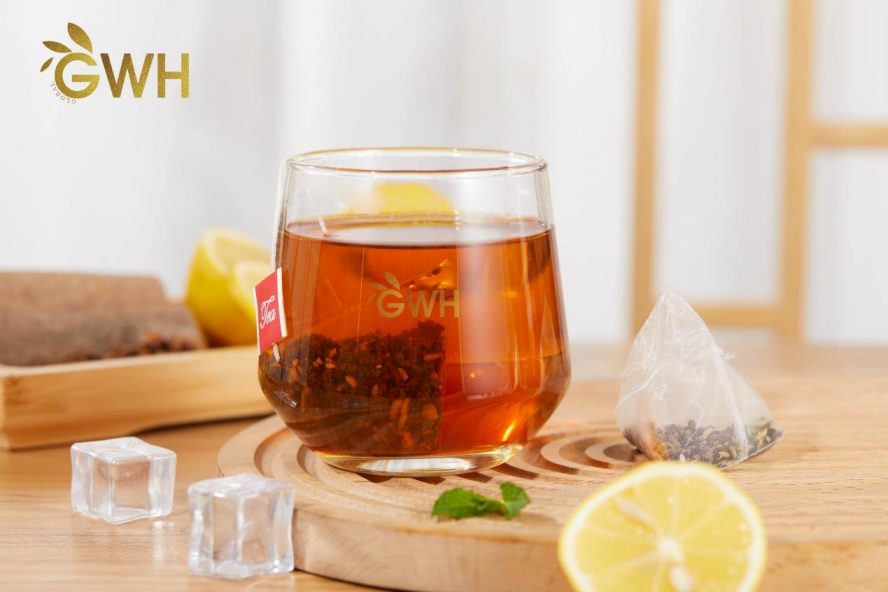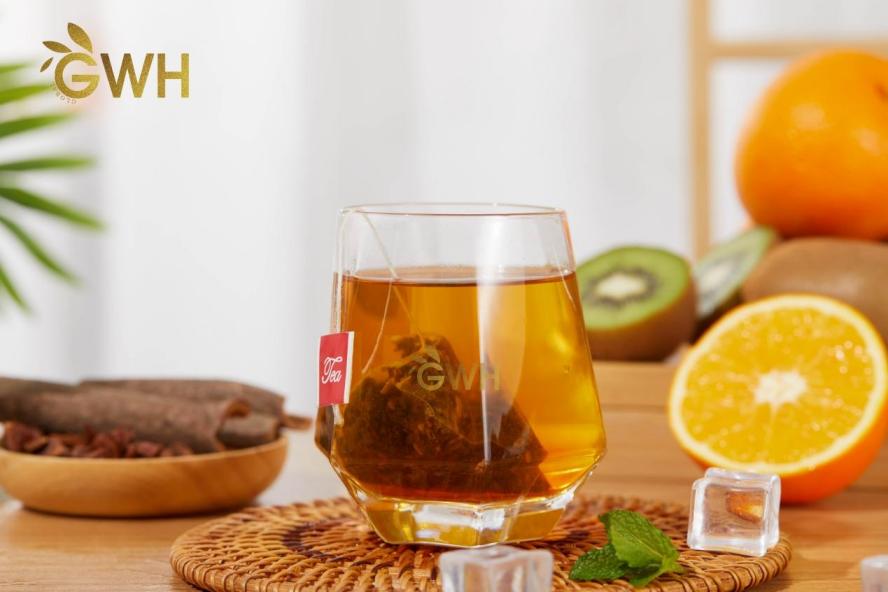For centuries, tea has been cherished across cultures around the world, with its ability to soothe the senses and promote well-being is widely celebrated for its subtle yet potent properties. Recently, however, a particular variation—detox tea—has seen a surge in popularity and drawn significant consumer interest. Although both Tea for Detox and its traditional counterpart emerge from the same foundational brewing process involving plant leaves, notable differences in their composition, purpose, and health benefits have become evident. In this exploration, attention will be given to the nuanced distinctions between these two teas, with a particular focus on the factors driving detox tea’s growing popularity and how it caters to the specialized health needs of consumers.

What’s the Difference Between Tea for Detox and Regular Tea?
Specialized Formulas for Specific Wellness Needs
Unlike conventional varieties typically enjoyed for relaxation or pleasure, detox teas are specifically designed to target particular health concerns, such as weight management, appetite suppression, and toxin elimination. While traditional blends may offer general health advantages, these specialized versions are carefully tailored to provide a more precise and function-driven boost to overall well-being.
Often containing a combination of powerful ingredients like cinnamon, lotus leaf, and senna leaf, alongside traditional tea leaves, these blends are crafted with care. Each element is chosen for its distinct properties, which, when combined, work synergistically to promote detoxification, enhance digestion, and improve metabolic efficiency. People who turn to these teas generally seek targeted solutions—whether it’s to relieve bloating, support digestion, or achieve a flatter stomach.
On the other hand, regular teas, such as green, black, or oolong, tend to consist of just one type of leaf. Though they provide a range of health benefits, including cardiovascular support and anti-inflammatory effects, they lack the precision and targeted efficacy found in detox blends, which are specifically designed to address certain wellness needs.
Tea for Detox as a Weight Management Ally
Many consumers are drawn to detox teas for their potential to assist with weight loss. These specialized blends are often part of short-term programs—such as 14-day or 28-day cleanses—focused on fat burning, appetite control, and boosting metabolism. For example, GWH’s 14-day detox tea harnesses the natural power of its ingredients to help individuals shed weight while simultaneously clearing harmful toxins from the body.
By comparison, traditional teas, though healthy, are not typically promoted for such specific outcomes. While green and black teas may offer a slight metabolic boost thanks to their caffeine content, they lack the potent combination of herbs and spices that detox teas use to create a comprehensive strategy for weight management.
This tailored, targeted approach makes Tea for Detox especially attractive to those looking for a natural and effective way to achieve visible results without extreme dieting or synthetic supplements. The ability to fine-tune these blends to meet specific health goals further enhances their appeal to today’s health-conscious consumers.
Key Ingredients in Tea for Detox
The Multifaceted Benefits of Cinnamon and Lotus Leaf
In Tea for Detox formulations, a high level of precision is employed to ensure maximum effectiveness. Cinnamon, often included in these blends, is known for its well-established ability to stabilize blood sugar levels and improve digestion. Additionally, its naturally sweet, warming taste enhances the sensory experience, making each sip more enjoyable. Another essential component, lotus leaf, recognized for its fat-burning properties, is often sought after by those looking to reduce weight and manage cholesterol.
In contrast, standard teas rarely feature such specialized ingredients. Although green tea is frequently praised for its antioxidant content, it does not provide the same targeted health benefits that ingredients like cinnamon and lotus leaf deliver in detox teas, where these components play specific functional roles.
Senna Leaf for Gentle Cleansing
One of the most significant ingredients found in many detox blends is senna leaf, valued for its natural laxative effects. This ingredient plays a key role in promoting digestive cleansing and is typically included in short-term detox regimens, such as GWH’s 14-day cleanse. However, due to its strength, senna leaf is recommended for moderate consumption and should not be used over extended periods.
In contrast, traditional teas generally do not contain such potent cleansing elements. These beverages instead offer a gentler means of supporting overall health by helping to reduce oxidative stress or improve mental clarity, without the strong detoxification focus found in blends that incorporate senna leaf.
Tea Leaves: The Core of Both Varieties
Despite the differences between detox and regular teas, both share a common base—tea leaves. Whether sourced from green, black, or oolong varieties, these leaves are rich in antioxidants and other beneficial compounds. However, in detox teas, the tea leaves serve as just one part of a more complex formulation designed to address specific health concerns. In traditional teas, on the other hand, the tea leaves themselves take center stage.
While regular tea is often enjoyed for its simplicity, pleasurable flavor, and broad range of general health advantages, detox teas stand out by starting with the same base but then building on it. Various herbs and spices are added, turning the tea into a multifunctional, health-focused beverage that goes beyond just providing antioxidants.
Brewing and Consuming Tea for Detox
Simple and Effective Preparation
The ease with which Tea for Detox can be prepared is one of its most notable advantages. For example, GWH’s detox blend requires nothing more than dropping a single tea bag into 200ml of boiled water and letting it steep for 5-10 minutes. Its simplicity allows even those with the busiest schedules to seamlessly integrate it into their daily wellness routines.

Although the brewing process mirrors that of traditional tea, the significant distinction comes in how it’s consumed. Typically, detox teas are part of a structured regimen, often spanning 14 or 28 days, with clear guidelines on frequency—usually just once a day or every other day. Such specific instructions ensure the body receives the full benefits without experiencing unnecessary strain.
Conversely, traditional teas can be enjoyed more freely, without adhering to such strict consumption rules. These teas are often associated with moments of leisure, cultural traditions, or social gatherings, while detox teas demand a more mindful approach due to their health-focused intentions.
Detox Teas as a Holistic Health Ritual
For many, detox teas represent more than just a simple drink; they become a central part of a larger wellness journey. Incorporating detox blends into daily routines frequently goes hand in hand with the adoption of healthier eating habits, regular physical exercise, and an overall focus on self-care. As such, detox teas play an integral role in a more comprehensive approach to health and well-being.
In contrast, regular teas generally do not require this level of commitment. While they certainly can enhance a healthy lifestyle, they lack the same structured, intentional effort that detox programs often demand.
The Growing Popularity of Tea for Detox
Increasing Consumer Interest in Targeted Wellness Products
The surge in demand for Tea for Detoxs is reflective of a broader trend among health-conscious consumers, who increasingly seek products that offer tangible, measurable benefits. Detox teas provide an ideal solution for those looking for quick, natural remedies to manage weight, improve digestion, and clear their bodies of toxins.
While traditional tea maintains a steady appeal, it generally attracts a more generalized audience. Detox teas, on the other hand, cater to a specific, growing niche of consumers who are searching for highly specialized wellness solutions. Companies like GWH have capitalized on this trend, offering premium detox teas that address precise consumer needs.
Strategic Marketing for Measurable Health Goals
The success of detox teas can also be attributed to the strategic way in which they are marketed. Unlike traditional teas, which are often promoted for their broad health benefits, detox teas are positioned as solutions for specific health issues, such as bloating, weight loss, and toxin removal. Brands like GWH clearly outline the expected results of their detox teas, providing users with easy-to-follow instructions and clearly defined outcomes, such as their popular 14-day cleanse.
In contrast, regular tea marketing typically emphasizes the broader enjoyment of the beverage and its general health benefits. While still valuable, this approach lacks the immediacy and targeted promise that make detox teas particularly appealing in today’s fast-paced health market.
The Future of Detox Tea in the Health and Wellness Industry
As the wellness industry continues to grow and evolve, the demand for detox teas shows no signs of slowing down. With increasing consumer awareness around digestive health, metabolic support, and the need for periodic cleansing, detox teas offer a natural and effective solution to these concerns. The growing popularity of short-term cleansing programs also contributes to the demand for customized detox blends.

Suppliers like GWH, with their commitment to providing tailored detox solutions, are well-positioned to thrive in this expanding market. By continually innovating and refining their product offerings, detox tea producers are poised to remain at the forefront of the wellness industry, offering effective, all-natural solutions for health-conscious individuals seeking to enhance their well-being.
Conclusion
In conclusion, while both traditional and detox teas have their rightful place within a healthy lifestyle, the latter stands out for its carefully selected ingredients, structured consumption patterns, and targeted health benefits. With the increasing consumer demand for products that offer quick, natural health solutions, Tea for Detox is likely to remain a prominent choice, providing individuals with the specific support they need to meet their health goals.


